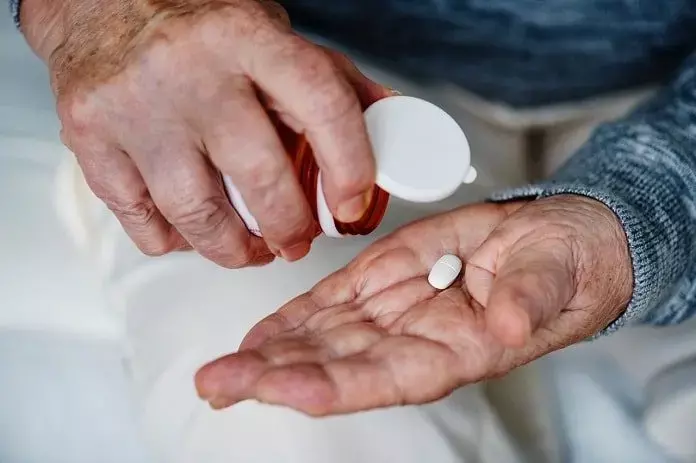- Home
- Medical news & Guidelines
- Anesthesiology
- Cardiology and CTVS
- Critical Care
- Dentistry
- Dermatology
- Diabetes and Endocrinology
- ENT
- Gastroenterology
- Medicine
- Nephrology
- Neurology
- Obstretics-Gynaecology
- Oncology
- Ophthalmology
- Orthopaedics
- Pediatrics-Neonatology
- Psychiatry
- Pulmonology
- Radiology
- Surgery
- Urology
- Laboratory Medicine
- Diet
- Nursing
- Paramedical
- Physiotherapy
- Health news
- Fact Check
- Bone Health Fact Check
- Brain Health Fact Check
- Cancer Related Fact Check
- Child Care Fact Check
- Dental and oral health fact check
- Diabetes and metabolic health fact check
- Diet and Nutrition Fact Check
- Eye and ENT Care Fact Check
- Fitness fact check
- Gut health fact check
- Heart health fact check
- Kidney health fact check
- Medical education fact check
- Men's health fact check
- Respiratory fact check
- Skin and hair care fact check
- Vaccine and Immunization fact check
- Women's health fact check
- AYUSH
- State News
- Andaman and Nicobar Islands
- Andhra Pradesh
- Arunachal Pradesh
- Assam
- Bihar
- Chandigarh
- Chattisgarh
- Dadra and Nagar Haveli
- Daman and Diu
- Delhi
- Goa
- Gujarat
- Haryana
- Himachal Pradesh
- Jammu & Kashmir
- Jharkhand
- Karnataka
- Kerala
- Ladakh
- Lakshadweep
- Madhya Pradesh
- Maharashtra
- Manipur
- Meghalaya
- Mizoram
- Nagaland
- Odisha
- Puducherry
- Punjab
- Rajasthan
- Sikkim
- Tamil Nadu
- Telangana
- Tripura
- Uttar Pradesh
- Uttrakhand
- West Bengal
- Medical Education
- Industry
Phosphate-binders Increase Blood Pressure in CKD Patients

Serum phosphate concentrations rise as chronic kidney disease (CKD) progresses and, higher concentrations are associated with vascular calcification, cardiovascular events, and all-cause mortality. A recent study suggests that the phosphate-binding drug, lanthanum carbonate, may increase blood pressure in patients with chronic kidney disease (CKD). The research has been published in the American Journal of Kidney Diseases on January 08, 2021.
Serum phosphate concentrations rise as chronic kidney disease (CKD) progresses and, higher concentrations are associated with vascular calcification, cardiovascular events, and all-cause mortality. The relationship between serum phosphate and BP is less established, but emerging data suggest that higher levels may induce microvascular dysfunction and increase BP. Therefore, Dr Mitra S. Jamshidian, MD, MS and team conducted a study to evaluate the association between phosphate-lowering medications and BP in advanced CKD.
Researchers conducted a post hoc analysis of the COMBINE (CKD Optimal Management with Binders and Nicotinamide) trial, that involved 205 patients, who were randomly assigned to receive either lanthanum carbonate or nicotinamide, an inhibitor of active intestinal phosphate transport, or placebo.
Key findings of the study were:
• At baseline, eGFR was 32±7 ml/min/1.73 m2, serum phosphate was 3.7±0.6 mg/dl, and BP was 129±17/71±12 mmHg. Researchers noted that about 94% of the participants were on antihypertensive medications.
• After12 months of trial, they found that lanthanum carbonate users had a significant 5.52 mm Hg increase in systolic blood pressure compared with nonusers. However, the diastolic blood pressure remained similar between the groups.
• They reported that the effect on SBP was observed by the 3-month follow-up visit. They further added, " The mechanism by which LC is associated with increased SBP may be independent of its effects on phosphate absorption."
• Based on these findings, they suggested that LC may reduce the gastrointestinal absorption of antihypertensive medications.
• They also wrote that the FDA approval for LC warns that it may impair absorption of angiotensin-converting-enzyme inhibitors (ACEI) and recommends against their concurrent use of LC.
The authors concluded, " Given the widespread use of phosphate binders in CKD, the very high prevalence of hypertension, FDA warnings about co-administration of LC with ACEI, and the large magnitude of change in SBP we observed, future studies to confirm these findings and determine the mechanisms should be a high priority."
For further information:
https://www.ajkd.org/article/S0272-6386(21)00009-3/fulltext#%20
Dr Kartikeya Kohli is an Internal Medicine Consultant at Sitaram Bhartia Hospital in Delhi with super speciality training in Nephrology. He has worked with various eminent hospitals like Indraprastha Apollo Hospital, Sir Gangaram Hospital. He holds an MBBS from Kasturba Medical College Manipal, DNB Internal Medicine, Post Graduate Diploma in Clinical Research and Business Development, Fellow DNB Nephrology, MRCP and ECFMG Certification. He has been closely associated with India Medical Association South Delhi Branch and Delhi Medical Association and has been organising continuing medical education programs on their behalf from time to time. Further he has been contributing medical articles for their newsletters as well. He is also associated with electronic media and TV for conduction and presentation of health programs. He has been associated with Medical Dialogues for last 3 years and contributing articles on regular basis.
Dr Kamal Kant Kohli-MBBS, DTCD- a chest specialist with more than 30 years of practice and a flair for writing clinical articles, Dr Kamal Kant Kohli joined Medical Dialogues as a Chief Editor of Medical News. Besides writing articles, as an editor, he proofreads and verifies all the medical content published on Medical Dialogues including those coming from journals, studies,medical conferences,guidelines etc. Email: drkohli@medicaldialogues.in. Contact no. 011-43720751


